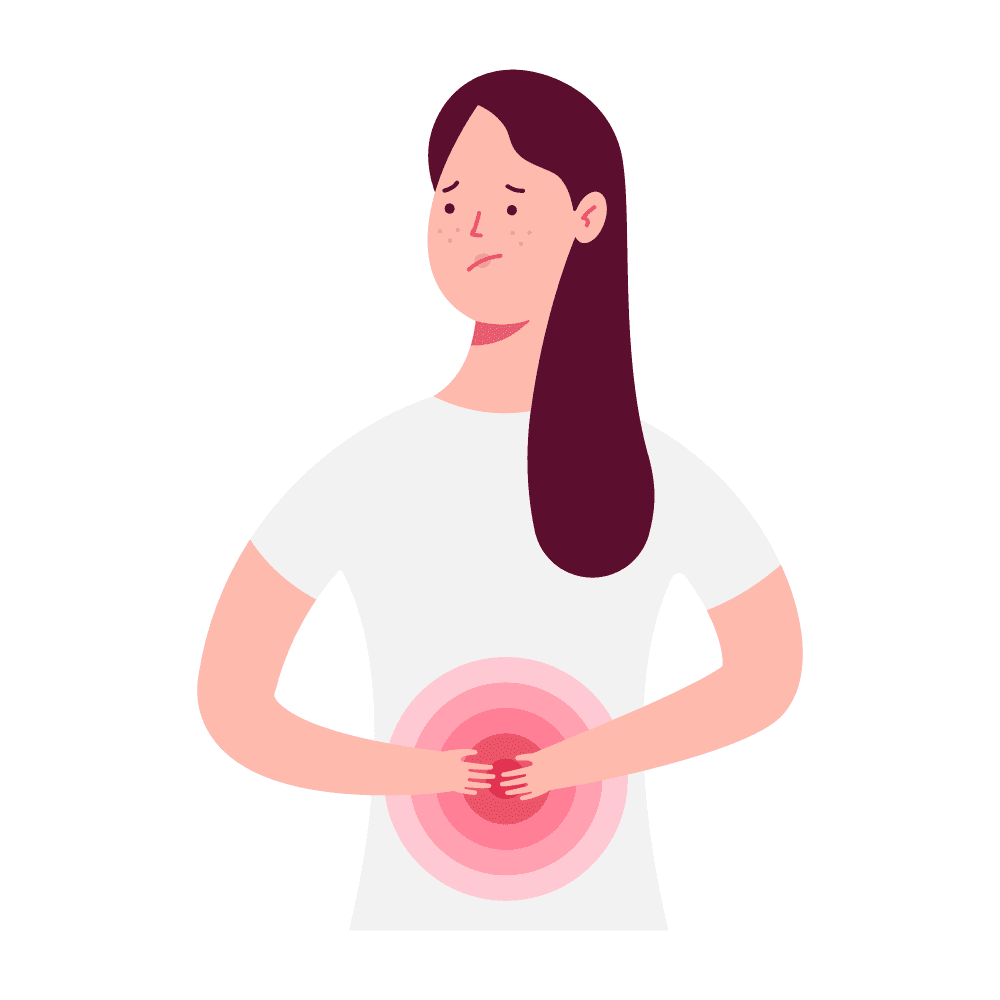What Causes It?
Inflammation (such as in appendicitis, pancreatitis, or diverticulitis)
Intestinal disorders (such as irritable bowel syndrome or inflammatory bowel disease)
Infections in the stomach or intestines
Obstruction or blockage in the intestines
Organ rupture or perforation
Abdominal trauma
Hernias
Gallstones or kidney stones
Ulcers
Gastroesophageal reflux disease (GERD)
Food poisoning or allergies
Lactose intolerance
Gynecological issues (in women)
Urinary tract infections
Cancer
Signs & Symptoms
Pain that can be sharp, dull, stabbing, cramp-like, or achy
Pain that may be localized to a specific area or generalized across the abdomen
Fever
Nausea or vomiting
Diarrhea or constipation
Bloating or distension
Loss of appetite
Inability to pass gas or stool
Jaundice (yellowing of the skin)
Blood in stool or vomit
Painful urination
Unexplained weight loss
